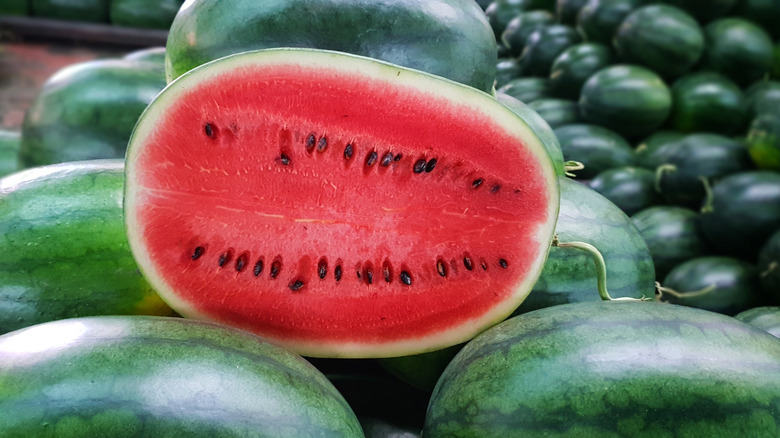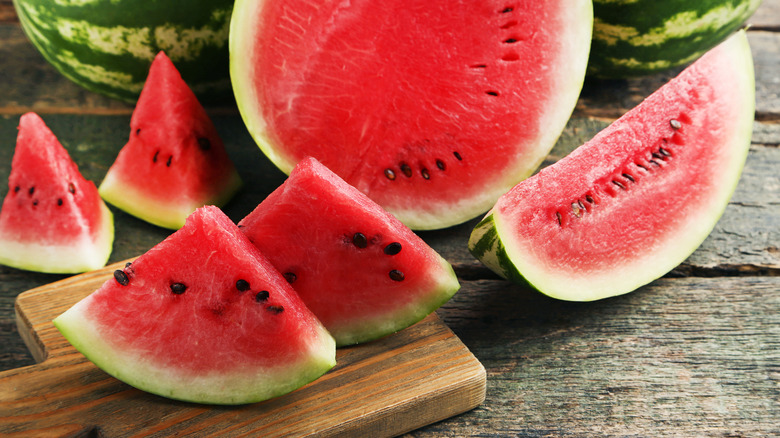Why You Should Eat More Watermelon During Allergy Season
Although spring has peaked and now descends into the ever-warming swamp of humidity that is summer, it is not too late to consider introducing food to boost your immune system into your diet. Among such helpers, Delish lists watermelon.
The reason you are encouraged to consume watermelon is that it contains lycopene, which Delish describes as something that lowers inflammation in the respiratory system and can help ward off infection. Going into more detail, Healthline explains that lycopene is a plant nutrient that serves as an antioxidant. Studies show lycopene may slow down the growth of certain cancers and may lower the risk of heart problems, though it's best known for its general antioxidant properties. If, for whatever reason, you happen to dislike watermelons, you can still include lycopene in your diet by eating tomatoes, guava, papaya, or grapefruit.
While Healthline does not tackle the respiratory benefits of lycopene, NDTV does, specifically in the form of tomatoes. They note the European Respiratory Journal published an article that found adults who ate two or more tomatoes a day slowed the decline of their lungs, and Hunter Medical Research Institute reported that two or more glasses of tomato juice per day helped improve airway inflammation. So, find a juicy tomato or watermelon and gush.
What it means when fruit contains antioxidants
So, once again a certain food is labeled beneficial because it contains an antioxidant. However, despite how good antioxidants sound in theory, it can be difficult to parse exactly what people mean when they sagely say, "This fruit contains lots of antioxidants."
Antioxidants, as Harvard's School of Public Health explains, are substances that stave off the effects of a set of chemicals called free radicals. Free radicals exist within our bodies due to the natural day-to-day things we do, such as eating, exercising, or inhaling air pollution. Once created, free radicals siphon electrons from various parts of our body, which damages them. Antioxidants offer their electrons to the free radicals, which leaves us relatively undamaged. Really, "antioxidant" is a massive term referring to good substances in general, like vitamin C. However, the benefits they bring are disputed and research shows they may be most effective in their natural setting — a fact ignored by the health food and supplement industry. So, while you should eat watermelons and tomatoes, you should consider lycopene as a supplementary good for allergy season, and not a mystical substance as often advertised.

